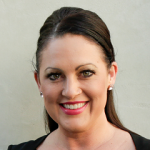For a PDF version: Free Cuffelinks ebook of Special Edition 200
Hamish Douglass, Chief Executive Officer and Chief Investment Officer, Magellan Asset Management

1. My central advice would be that successful investing is about finding and then owning for the long-term companies that can generate excess returns for years to come. It’s not about looking for stocks that might come into short-term favour on stock markets. The worthwhile companies to own for the long term will generally possess some form of Warren Buffett's fabled ‘economic moat’. This term is how Buffett describes a company’s sustainable advantage over competitors that enable it to earn superior returns that are well above the cost of capital. The pick of these high-quality companies can expand their businesses in the same profitable fashion. An underplayed aspect to owning quality stocks is a willingness to let compound returns work their charm over time. Even a return on capital that is just a few percentage points higher than that delivered by competitors will create vastly more shareholder value as years go by.
2. Beware of turnarounds. Often when companies appear to have resurrected their fortunes they are only enjoying some short-term benefit that won’t last. The best way to avoid turnarounds that are duds is to stay focussed on finding high-quality companies.
John Pearce, Chief Investment Officer, Unisuper

Rule 1. Always start with the investment logic then do the maths.
Rule 2. If the maths doesn't support the logic, change the maths.

Alex Denham, Senior Adviser, Dartnall Advisers

1. Back away from the credit card! I got myself into strife in my 20s having fun with a credit card. My dad eventually loaned me the money to pay it off. He charged interest on the loan but it was a lot less than the credit card interest. If you need a charge card, which I guess we all do now with internet purchases, get a debit card. Then you can only spend what you have and don’t get into trouble with the still ridiculous interest rates on credit cards.
2. Superannuation is boring – I should know I made a career out of it. But if you’re working, you’ll be receiving super contributions some so pick a fund – probably a low-cost industry fund at this point in your life - and make sure you nominate that fund every time you change jobs so you don’t end up with multiple accounts that can get lost. One day your super could be your biggest asset and it won’t be so boring then. Oh, and lock in some death and TPD cover, income protection and trauma insurance at level premiums. You’ll thank yourself later.
Shane Oliver, Chief Economist and Head of Investment Strategy, AMP Capital

1. Make the most of the power of compound interest
When you are young you have lots of time on your side to look through short-term setbacks in markets and get the benefit of the way investing returns compound on top of each other in an almost magical fashion over long periods. But investing in bank deposits and bonds won’t make the most of this because they don’t grow with the economy in the same way that growth assets like shares and property do. For example, over the last 40 years – which covers a period that saw high inflation and low inflation, strong growth and recession and numerous crises - $1000 invested in Australian shares would today be worth $116,000 whereas if it was invested in bonds it would only be worth $36,000 and in cash only $25,000.
2. Turn down the noise
Over your investing and working life, there will be lots of ups and downs: economic booms and busts, financial market bubbles and crashes, periods of higher interest rates and periods of low rates. The key is to avoid jumping at these swings and getting blown off course. The best way to do this is to turn down the information noise you will be subjected to in the decades ahead as much of this will be aimed at making your worst fears worse. If anything try and do the opposite to the crowd. As the well-known investor Warren Buffett once said: “Be fearful when others are greedy and greedy when others are fearful.
Chris Stott, Chief Investment Officer, Wilson Asset Management

1. Look through the ‘noise’
When investing in shares, do not be distracted by the noise in the market about a company. Rather, take a medium to long-term view of the business based on its fundamentals.
The only exception is when you can use the noise to your advantage. For example, if the noise leads to a short-term fall in a company’s share price, it can be used as an opportunity to buy more stock.
2. Don’t invest if you don’t understand
If you cannot understand a company or reconcile its accounts, then do not invest in it. Only invest if you can fully grasp how the company makes money.
Put another way, and to paraphrase legendary investor and fund manager, Peter Lynch, if you’re willing to invest in a company then you should be able to explain it to a fifth grader. For example, it took a significant amount of time to understand in full the mechanics of Babcock and Brown and its various satellite companies.
This critical rule of successful investing was drummed into me when I started at Wilson Asset Management and is one I continue to apply to every investment decision.
Roger Montgomery, Chairman and Chief Investment Officer, Montgomery Investment Management

Dear Roger,
There are two key ingredients to successful investing. The first is reasonable intelligence that should be backed by some business ownership experience (be sure to get plenty), and the second is patience. Most of the time there will be little activity required so you can spend your days understanding how businesses vary in their ability to reinvest capital at various rates of return, remembering that higher is always better. Read prodigiously, always. Also spend time thinking about how different industries’ competitive landscapes have changed and will change.
Once you have identified a high quality business with superior long-run prospects buy it on the assumption that you will never need to sell it. You can be rich buying and selling but you’ll be wealthy buying and owning. Own a great quality company’s share the way you might own farmland inherited from your great grandparents – every day the crazy neighbour will shout over the fence a price at which he’s willing to buy your farm and a price at which he’s willing to sell you his. Be sure to always have some cash and simply wait until he’s deeply depressed and despondent and willing to sell you his at a very cheap price. Then buy. The rest of the time there won’t be much to do, in fact the really obvious investments will only be presented half a dozen times each decade.
Oh, and be sure to marry someone who loves the Lord and naturally delights all those around her. Support each other’s hopes and aspirations and build a sense of purpose into your lives together by working, to get, to give.
Andrea Slattery, Formerly Chief Executive Officer, SMSF Association

As a 20-year-old, my first step would be to employ a recognised specialist advisor to guide me on my life’s journey. I cannot stress strongly enough how important it is to get an advisor, armed with the right qualifications, who I can trust to give me full and frank advice. This person would be responsible for advising me on all aspects of my financial well-being, from tax, to business advice, wealth generation, estate planning and superannuation. It is a relationship like my family doctor, except in this case overseeing my 'financial health'.
Next, I would suggest looking at all the investment opportunities available; to genuinely understand performance, returns, risk, diversification and asset allocation is critical. There is a vast range of assets available from traditional shares and property to ETFs, with new investments being developed all the time. Knowing the value of each asset and how it can personally benefit me long term means that I will be more likely to realise my financial goals of being self-sufficient through life.
Which brings me back to my first piece of advice – get a recognised specialist. Only by having a trusted relationship with a professional advisor can I be confident of building an investment portfolio to meet all my goals.
Rob Prugue, Senior Managing Director and Chief Executive Officer, Lazard Asset Management (Asia Pacific)

Just as we too didn’t listen to our parents when they shared some of their hard-learned wisdom, I guess we shouldn’t be too surprised if our own 20-year-old ‘know-it-all’ selves show equal disregard to our own hard-earned wisdom. And, if you come to think of it, THIS is what made us the investors we are today, inasmuch that it took the market to bloody our self-confidence and arrogance. As young investors, we foolishly confused intelligence for wisdom, not realising that ‘intelligence’ is learned while ‘wisdom’ can only be experienced.
It is through our life-experienced mistakes that we eventually elevated our market intelligence. Unlike ALL other careers, our community considers us 'successful' if 55% of our investment theses prove to be true. Stated differently, even 'successful' investors get it wrong 45% of the time. But what elevates us from 'successful' to 'great' investors, however, is in the humility learned from the 45% of the time our investment thesis fails.
Just as with salt, however, there is a fine balance between too-much and too-little humility. Too much humility is often met with indecision, whilst too little often results in reactive investment exposure. There is no finite balance, as our own investor personality will determine where this line ultimately lies. Nonetheless, recognising that there is a balance is of great importance.
Given as twenty-year-olds most of us had the attention span of a gnat, the two valuable lessons are finding the grounding from humility and the fine balance from knowing to find the right amount of conviction.
Warren Bird, Executive Director, Treasury & Investments at Uniting Financial Services

Listen here, young Warren, you’re a self-confident fellow. You need to put boundaries in place so you aren’t over-confident. Back your views by all means, but make the effort to understand risk and manage it well. That way your investment strategies will be robust and sustainable.
First, learn about tail risk. This is when things don’t seem likely to happen, but if they do they have a very big impact that undoes your investments. It’s a tricky one, tail risk. People may laugh at you for recommending against a safe looking opportunity that runs smoothly for years. But you’ll see lots of folks lose their life savings because the losses when a tail risk event happens can wipe them out and usually can’t be retrieved.
Second, understand the value of diversification. It’s the single best way to ensure that the things you don’t know (there will be plenty!) can’t blow your investment strategy out of the water. What represents appropriate diversification will be a bit different for each asset class, but it’s a high risk strategy to have large chunks of a portfolio in just a couple of assets. "Diversify, diversify, diversify" will be a great creed to follow.
Jeremy Cooper, Chairman - Retirement Income, Challenger Limited

I bought my first shares at age 20 in 1981. What have I learnt since then?
1. Blue-chip shares come and go.
All corporates go through periods of bad management, have near-death experiences and make poor allocations of capital. Whole industries become unattractive and can even become extinct. The style of investing where you just buy an allegedly 'blue-chip' share and put it in the bottom drawer is nonsense. You have to be at least 'passively active'. It's quite OK to have someone else pick your stocks for you and retirees shouldn’t do it themselves. Even though you might be retired a long time, your investing horizons are much shorter.
2. It's all about asset allocation.
It is not about what stock to pick, but what sort of assets does it make sense to invest in over your particular horizon? For Australians, this should include currency exposures. Having a good spread of low cost ETFs makes sense as a base. Then you can select active management in specific sectors with the aim of adding targeted alpha. You can even actively manage ETFs.
My portfolio these days is quite global, but I still like my Australian equities exposure for the franking credits.
Monica Rule, SMSF Expert and Author

If I could go back in time and be a 20-year-old again, I would make sure I did not waste so much money on gifts but instead, invest earlier.
Having two sisters with young children, I spent a lot of money on gifts for my nieces and nephew. If only I learned to budget then, I would have known much earlier how much money I wasted on toys without realising it. Children get plenty of gifts from their parents anyway and can only play with so many toys at the one time!
As soon as I started working at fast food restaurants on the weekends at the age of 16, I started spending money on clothes. If I could go back in time, I would put half of the money I spent on clothes into a superannuation fund. Compounding investment earnings is the key to accumulating money as I leant later in life. The more time you have, the more money will accumulate. Not being able to access my superannuation savings would also stop me from wasting money on clothes each week.
I would also have lived with my parents longer so that I could invest in property or the share market instead of wasting money on rent.
Karl Siegling, Managing Director, Cadence Asset Management

21 year old Karl……
- Don’t buy falling stocks
- Don’t sell rising stocks
- Learn how to calculate operating and free cash flow… focus on those numbers
- Focus on companies that make money
- Be careful of debt both personally and inside listed stocks
- Knowing nothing and doing nothing is reasonably low risk
- Knowing a lot and doing something is reasonably low risk
- Knowing a little bit about a whole lot is reasonably high risk
- Hope, fear and greed are strong emotions and can produce extreme situations
Rodney Comegys, Head of Investments - Asia Pacific, Vanguard

1. The first thing that comes to mind when I think about my 20 year-old self is overconfidence – specifically overconfidence in my ability to beat the market. My early personal investments were concentrated in a handful of stocks, which all ended up being poor performers relative to the broad market. One of those, a US airline, even went bankrupt soon after, which was a big wake-up call. After twenty years’ experience in investment management, I would tell my younger self how challenging it is, even for professional investors, to consistently beat the market. I certainly became a better investor once I grasped the awesome power of diversification.
2. Compounding really is the most powerful savings tool at our disposal. When I log into my Vanguard 401(k) portal in the US, I can see that over 20 years of saving, about half of my savings balance is from investment returns. The other half is made up of my contributions over the years. While I have been able to contribute more over the last 10 years than the decade before that, it is those early dollars I was able to save in my 20s that have had the most impact on returns through compounding over time. Although retirement seemed a long way off back then – and it still does today – I would be in a far better position today if I had made fewer silly purchases and put just a little extra down when I was younger.
I also would have told my 20 year-old self not to buy that Honda Prelude. This compact sports car was uncomfortable to drive on my long commute to work and the mileage wasn’t great. I should have bought the Civic, which was significantly cheaper and more practical, and then tipped the money I would have saved into my Vanguard retirement account.
Geoff Wilson, Chairman, Wilson Asset Management

1. Put as much money as you can into the share market
For simple and effective exposure to a diversified investment portfolio, I would buy the four largest listed investment companies (LICs) – AFIC (ASX:AFI), Argo Investments (ASX:ARG), Milton Corporation (ASX:MLT) and WAM Capital (ASX:WAM). I would also participate in their dividend reinvestment plans (DRP) as the benefits of compounding are significant.
2. Read, observe and think
To be a successful investor requires work. This means collecting and analysing as much information as possible so you can put all the puzzle pieces together.
Read: Start by reading as much as you can. Read about the world, the economy and individual companies. Sir Ron Brierley, one of Australia and New Zealand’s greatest investors, reads every annual report from the last 10 years to gain a good information base about a company.
Observe: At every opportunity, observe what is happening around you – in your neighbourhood, at a national level and across the world. For example, when you go shopping consider how many customers are in each store and the number of vacant tenancies.
Think: Distil what you have read and observed to identify trends and likely impacts on a company, or a group of companies, including the effect on earnings.
Judith Fox, Chief Executive Officer, Australian Shareholders’ Association

1. Start now! That would be my first exhortation to my 20-year-old self. I’d worked part-time all through university and had no trouble finding full-time work when my studies completed. My living costs were not high, but I spent my wages as they came in when I was 20. I had a lot of fun, but looking back, if I had properly understood the wonder of compound interest, I would tell my young self to put at least some of my spending money in an account and use it to buy shares. Everyone at 20 wants financial freedom — now I would tell my younger self that such freedom comes from the discipline of investing.
2. Which leads to the second insight I’d offer that younger woman — research! It’s like anything else — the more time and effort you put in, the better you get at it and the more you get out. Learn how to read annual reports and earnings reports. If you want to inhabit your life with confidence, the research capacity that underpins investing is a great skill to have. You don’t need a finance degree — I didn’t have one. You just need to apply yourself.
John O'Connell, Chief Investment Officer, Banking & Financial Services, Macquarie Group Limited

1. The key to success is showing up. For an investor this means first make sure you are comfortable with the potential cyclical downside of any investment – then consider the potential upside. Risk comes first. True risk is being forced by either fear or contract to crystallise capital loss. This robs the investor of the ability to witness mean reversion to get them back in the game. Successful investing is about harvesting risk premiums over time – the longer you ‘show up’ the more you will harvest.
2. Fees. The more you pay, the glossier the narrative you receive, not the outcome. Low fees, compounded over time are more bankable than any strategy.
Noel Whittaker, bestselling author and leading authority on personal finance

It’s 1960, and I am an impoverished bank officer aged 20. I spend 100% of every pay, have a car on hire purchase, and feel secure in the knowledge that the bank will give me three times my salary at low rates of interest to buy a home. That's a good deal given the average home in Brisbane then cost about two years' average salary.
I am very good with numbers, as one of my jobs is to keep the hand ledgers and work out the interest. But, I have never heard of the concept of saving or investing. So, what advice would I give to myself if I could live my life again?
I would tell myself to buy two books. They were written many years ago, have stood the test of time, and have literally changed the lives of millions of readers.
The first is The Richest Man in Babylon written by George Clason and published in 1926. It has been on the best seller lists ever since and has one central message – a part of all you earn is yours to keep. Reading that would have been a revelation to a young bank officer who was used to spending every pay. It would have set me on the road to financial freedom at an early age.
The second is Think and Grow Rich written by Napoleon Hill in 1937 and which has sold over 90 million copies. I did not read that book until I was 34 and it changed my life. The downside was that I was bitterly disappointed that it took me 34 years to discover it. The major message for me in that book was that your future is in your hands. After I read that book, I made a vow to spread its principles for the rest of my life.
Right now, in Los Angeles, they are making a film The Legacy of Think and Grow Rich which features people like myself whose life has been changed by the book. My son James Whittaker is writing a book about the people who will feature in the film and now is busily interviewing a host of people such as self-made billionaires, and top sports people, who attribute their success to Think and Grow Rich.
The central premise of the book is “What the mind can conceive and believe, it can achieve.”
Don Stammer, Adviser to Altius Asset Management, Stanford Brown Financial Advisers and the Third Link Growth Fund

In 55 years of taking an interest in investments, I’ve learnt (and re-learnt) five key principles:
- Compounding adds the touch of magic to the long-term returns of patient investors.
- Investment markets move in cycles - always have and always will. Be counter-cyclical.
- Swings in market sentiment can cause asset prices to overshoot, up and down.
- Sensible diversification across and within the main asset classes reduces risk.
- Borrowing to fund investments can boost returns – but raises the dangers.
My twentieth birthday was in 1961, mid-way through my fourth and final year as an undergraduate. In those four years, I would have spent about $2,000 on girls and beer. (Don’t think of me as a cheap date: that’s well over $20,000 in today’s prices). Had I adopted a more frugal social life - and invested $1,000 in the share market in 1961 and put the other $1,000 in the market when shares sold off in 1974 (thank you, Gough), and achieved market returns - I’d now have a portfolio worth $5,280,000.
Were I to be 20 again, I’d give equal respect to compounding and the cycle in share prices - and to my social life.
Olivia Long, Chief Executive Officer, SuperGuardian

If there’s one word to describe me, it’s “bullish”. I’m positive by nature and this translates into how I approach my personal, professional and financial goals. At 20, I bought my first property. Two years later, I acquired an investment property and, by leveraging the equity in that property, had a second investment property at 24. It wasn’t just property. At 21, I began buying shares. I had it all figured out – or so I thought.
However, on moving from Adelaide to Melbourne, my focus switched to buying clothes and having a good social life. There’s nothing wrong with buying clothes, or socialising, but not at the expense of your long-term investment goals. And working with the broking firm Ord Minnett, I developed a taste for share trading – a naive belief you could make money quickly. My 'poison' was options, which was a great way to lose money. Fast.
If I could turn the clock back, I should have stayed focussed on investing in blue-chip shares and property. Considering how the property market has appreciated over the past 20 years, using leverage to build a bigger portfolio would have been a smart move.
So, my advice, while boring, is simply this: buy blue-chip shares and property and let Father Time do the rest.
Alex Vynokur, Managing Director, BetaShares

First and foremost, start investing now, do not put it off. Like most 20-year-olds, I believed one needed to have significant assets in order to start investing. Start small, and let the power of compounding do its work.
Secondly, fees matter. Avoid paying high fees to active managers, they eat into your investment returns. Follow Warren Buffet’s advice and invest in a low cost index fund or an exchange traded fund (ETF).
Last but not least, be prepared to stay the course. Long term investing is a marathon: do not panic when markets fall, do not let emotions interfere.
Jonathan Rochford, Portfolio Manager, Narrow Road Capital Pty Ltd

1. Find the experts and invest with them
In most investment sectors, few investors materially outperform the index on an after fees basis in the long term. These handful of experts have typically spent at least 10 years learning their craft, understanding the gaps in the analysis of others and taking advantage of that. If you aren’t willing or able to put in the work, you’ll likely find yourself on the other end of their trades getting the wrong side of the deal. The best return you’ll get on your own time is by spending most of your effort on becoming an expert in your area of employment and finding experts to help you with managing your wealth.
Whilst few will become investment experts, most people can do a comparison of different managers and locate who the experts are and invest with them. Ignore the packaging and salesmanship, instead look for three key factors. An honest manager, with a track record of outperforming through the cycle and reasonable fees. When you find a good manager, ask them who they recommend in other sectors they don’t cover. Even great investment managers know to specialise in one investment area and delegate in others.
2. Read more and work smarter
The one thing almost all great investors have in common is that they read far more than their peers. They tend to be curious people who spend most of their time understanding what others think, rather than telling others what they think. They seek out opinions different to their own testing their hypotheses. They change their views when the facts or their understanding of them changes.
A great advantage of reading widely is that you can build up an understanding of what doesn’t work. By quickly killing off opportunities that have bad characteristics there’s a lot more time left to focus on those with better prospects. Great investors also learn how to turn a good investment into a great one, making small changes along the way to get more return out of the same opportunities.
Phillip Ruthven, Founder, IBISWorld Pty Ltd

1. I think you should know that there are a number of what are called classes of investment:
- Shares in listed companies
- Dwellings (that you live in)
- Property that you rent out (commercial & residential) or Property Trusts
- Government Bonds
- Cash (short term deposits)
- Collectibles (art, stamps etc)
- Precious metals (gold, silver, gems etc)
It is rare for any of the above to be the best investment year after year: they take it in turns, some rarely. But over the long term, Phil, since you could live to 100 in this 20th Century, shares will do best as they are the only active investment. All the others are passive (albeit tradeable and exploitable as a day-trader if you have the time and inclination). So you could do worse than keep buying shares, sleep nights, and retire very wealthy, especially if you also take advantage of superannuation fund tax benefits.
And, if or when you marry, it would be better to rent (preferably lease on 5 or 10 year periods) where you want to live and invest in dwellings where you don’t want to live, to get the best of both worlds.
2. Consider the wisdom of Lesley Parker, who I have never met, but sounds a bit like Warren Buffet.
The Holy Writ of Investment
The 10 Commandments of Investments, so to speak
- Remember the link between risk and return; keep it holy.
- Thou shalt remember that leverage is a double-edged sword.
- Thou shalt diversify. The ‘all the eggs in one basket’ risk.
- Honour thy asset allocation; don’t chase the ‘next big thing’.
- Thou shalt not invest in anything thou doth not understand.
- Thou shalt not buy tree investments. Money does not grow on trees.
- Thou shalt pay heed to fees and taxes. Some are too high.
- Thou shalt discern an adviser from a salesperson.
- Thou shalt not worship false gods. Remember Madoff (Ponzi scheme).
- Thou shalt not expect bull runs, nor bear markets, to last forever.
Source: Lesley Parker, SMH ‘Money’ 29 July 2009
Besa Deda, Chief Economist, St George Banking Group

When I was 20 years old and working for National Parks while at University, I tried to save but did not have a structured approach to savings and investing.
The first piece of advice I’d give to myself is to make a financial plan. This can be done formally with the help of an expert or taking a very simple but smart approach of saving a set percentage of your earnings. If savings are taken out of your income as soon as you are paid, you don’t have a chance to spend it. By paying yourself first, you avoid the situation where you don’t have the money to invest that you had hoped.
The second insight is then to use these savings to invest with a financial plan in mind. While retirement as a 20-year old might seem far away, wealth accumulation takes time.
A good approach is investing in blue-chip shares, as they tend to pay good dividends. These dividends can then be reinvested to grow the shareholding. Moreover, you don’t need a lot of money to start buying a few shares.
The aim is to grow wealth over time by building a diversified portfolio across asset classes that will withstand the swings of the business cycle.
Peter Thornhill, Financial Commentator, Motivated Money

First and foremost, the two lessons I acquired either by nature or nurture: spend less than you earn and borrow less than you can afford.
Secondly, I would copy and frame the page, from the Modern Encyclopeadia for Children (the set my parents bought for me as a child), that defined investing as “The productive use of capital so that a regular income is obtained.”
Thirdly, the magic of compounding and the need for patience.
To be aware of your environment and to be able to relate to the unbreakable links between the combination of productive capital, technology and labour.
Why people started businesses and the impact upon the progress of civilisation.
I would give my 20-year-old self a one-way airline ticket out of the country and tell him he has to work his own way home; or perhaps not!
Finally, I would ask that he learn by heart the poem 'If' by Rudyard Kipling until he could recite it to me.
Hugh Dive, Founder and Chief Investment Officer, Atlas Funds Management

1. Cash is King
Look at the cash flow statement not the income statement. The cash flow statement shows a picture of the actual cash flowing in and out of the company and is harder to manipulate than the income statement and is like blood pumping through the company. Assets and accounting profits aren’t enough to ensure survival without cash flowing in. For example, in 2015 Dick Smith Holdings reported income growing from $19 million to $38 million, yet operating cash flow fell from $52 million to -$4 million.
2. Cut your losses early
The first downgrade is rarely the last and management teams are incentivised to minimise the impact of adverse events. Management often provide the rosiest picture to maintain confidence from the capital markets, as they may need to raise more debt or issue equity later to help prop up the company. Company turn-arounds always take much longer and are more painful than initially expected. Even if you like the company’s management, business model and industry; watch the rebuilding from the side lines.
Professional investing is different from other professions, in that even those at the top of the profession are only getting 60% of their calls right, primarily because investment decisions are made on imperfect information and often rely on predicting the actions of other parties that may act irrationally. This is a success rate that we would not find acceptable in our test batsmen or cardiothoracic surgeons. What makes a successful investor is quickly admitting a mistake has been made and stopping small losses from becoming big ones.
Graeme Colley, Executive Manager, SMSF Technical and Private Wealth, SuperConcepts

If I was counselling my 20-year-old self, it would be something like this.
Thank goodness your parents taught you how to save, you did commerce with Merv (teacher) and luckily got into business studies at uni. Otherwise you wouldn’t have a clue.
There are probably a few things I couldn’t avoid which helped as well. One was compulsory superannuation when I joined the ATO just after leaving school and the other was buying a property which was negatively geared before I even owned a car. Would I have had super if it was voluntary, probably not as there were times I thought it was better spent on clothes or partying. As for negative gearing in the early 70s it didn’t even have a name but it allowed me into the property market and I eventually sold it to provide a deposit to purchase a larger place when I returned to Sydney.
Rachel Lane, Principal, Aged Care Gurus

Dear Rachel,
1. Here's some advice you’re not going to like. You know that apartment you bought last year – the one you are still so excited about renovating – you should sell it.
Investing in property has high ongoing costs – rates, insurance and of course mortgage repayments. You got a good deal to have an interest rate of 7%, but over 25 years you will pay back more in interest and other charges than you have paid for the property and that’s just the interest! Besides, you are working two jobs and missing out on opportunities to travel and finish your degree sooner – education and life experiences will prove more valuable. Sell the apartment.
2. Once you remove the financial obligations of the apartment, even after you pay rent, you will have more money to invest – or more time on your hands, it’s your choice. My advice is to invest in yourself – drop one of the jobs and spend more time on education and finding a job you love. Once you have your degree under your belt and a career path to follow there will still be apartments available for sale.
Greg Paramor AO, Managing Director, Folkestone

Everyone comes to investing in different ways and at different times depending on circumstances.
In my time the emphasis was to establish an opportunity for home ownership (a roof over your head was aspirational – and probably still is).
Shares were considered speculative – a bit like going to the track - particularly as I grew up in Perth and reached adulthood about the same time as the nickel and gold boom of the late sixties. (Anyone remember Poseidon?)
From one house we saved to buy a second house to renovate and sell (my weekend job). This worked well for a few years until a credit crunch almost wiped us out – markets do go down as well as up and banks aren’t friendly when that happens.
That escape lead me to set up a few rules:
- Have a plan – be disciplined and be prepared to take a profit (or a loss) if it reaches your hurdle or proves to be not in accordance with the original investment expectation.
- Investing (rather than speculating) is a marathon so be patient, but also persistent, in your long term plans.
Happy Investing !
Paul Moore, Chief Investment Officer and Founder, PM Capital

Trust your instincts and back your convictions.
The best investment opportunities will find few who are interested, many who are dismissive and some will even ridicule. Wells Fargo at the climax of the Savings and Loans crisis, the Australian dollar at 50 cents and commodity stocks post the 'TMT' mania and Las Vegas real estate post the GFC. When it comes to being a successful investor there is no safety in numbers, you must be prepared to stand alone. Never let the opinion of the crowd stop you from acting on what you know to be right. It is the same advice I would give for life in general.
Crispin Murray, Head of Equities, BT Investment Management

The market does not present you with regular and frequent money making opportunities. Good investment ideas are quite rare and their timing does not always suit.
As an investor you need firstly to be patient, be prepared to wait as something will come along.
Secondly when they do appear and conviction is high, be prepared to back the best ideas in a big way, don’t be too shy.
Jo Heighway, Partner, SMSF Assurance & Advisory, Deloitte Touche Tohmatsu

1. My first piece of advice for 20-year-old me would be to not fear my own home loan. In the early years it’s not easy to accept the amount of debt you need to get into to your own home. My fear of having a mortgage was only heightened by all the articles out there telling me how to pay off my home loan sooner and why I should free myself from non-deductible debt. At times I was so worried about the burden of my home loan that I sold houses at exactly the wrong time, losing money and eventually regretting it when I find out how much the property would be worth today! If I could go back in time I would be more patient, choose a home I could live in more long-term, and get comfortable with my mortgage.
2. My second piece of advice would be to focus my saving and investing on a long-term strategy. Small savings invested with a long-term view, rather than trying to put away huge chunks of earnings in short-term investment accounts that I ultimately just end up spending anyway!
Bryce Doherty, Managing Director, Head of Australia and New Zealand, UBS Asset Management (Australia) Ltd

The first thing about going back in time and giving investment insights to my 20-year-old self is that it is unlikely I would have listened.
However, with that to one side I would say the two best insights would be:
1. Move out of your parent's house and get off your mum and dad's payroll, and
2. You have time on your hands so let compounding returns be your greatest asset
Moving out of home and away from your parent's financial support is a great way to learn about budgeting, living within your means and the value of a dollar earned. While you live in a financially subsidized existence, it is easy to ignore financial discipline and habits that will create wealth for you in the long term.
Managing cash flow is one of the key skills that financial advisers find lacking in so many of their clients when they turn up for advice. The earlier you master this seemingly basic skill, the sooner you can create savings habits and wealth.
I remember buying CBA shares on float and then gleefully selling them once I had made a 10% profit – easy money after all ...
I wish I had realized that I should have been investing for decades rather than for profit target.
David Bell, Co-founder of Cuffelinks, Chief Investment Officer, Mine Wealth + Wellbeing

1. Focus on your core return drivers, risks, and themes. Be disciplined with your resource and time allocation (sometimes you can easily get distracted and spend too much time on peripheral issues). Always be cognisant of the big lessons in finance - valuations matter, bubbles eventually pop, mixing leverage with illiquidity is a recipe for disaster, there are good back-tests everywhere etc.
2. Think about the range of possible outcomes, not just expected returns. Are all those outcomes palatable? What are their likelihood? I call this thinking stochastically rather than thinking deterministically.
Ashley Owen, Co-founder of Cuffelinks, Chief Investment Officer, Stanford Brown

Advice to me as a 20-year-old investor in 1979.
It would be glib and unhelpful to say that I should have bought the stocks that, with the benefit of hindsight, turned out spectacularly well - eg buy Berkshire Hathaway (at $430 at the time, now $250,000 per share) or Westfield (the equivalent of 3.4c adjusted for all the restructures, now $14 (including SCG).
The biggest lesson in investing - and without doubt the hardest thing to do in practice - is to learn to resist the temptation of following the herd. Think for yourself and do the opposite of what everyone else is doing.
As a 20-year-old in 1979, the world was a very depressing and pessimistic place. Investors had been hammered by a decade of high inflation, rising unemployment, rising oil prices, collapsing US dollar, rising industrial unrest, poor revenues and profits, negative real returns from bonds and shares in Australia and globally. The outlook was very bearish at the time, and it seemed there was no light at the end of the tunnel.
What would I as an investor have done in 1979?
If I had succumbed to all the doom gloom, I probably would have followed the herd in piling into gold, which had been pushed up to US$850 per ounce (more than double what it is in real terms today, 38 years later).
If I was tempted to venture out of gold and invest in shares - if I followed the herd into the ‘hot stocks’ of the day - I would have lost all or most of my money in a few short years. The herd would have bought the hot US stocks at the time: Kodak ($61), Polaroid ($52), PanAm ($7) – all now bankrupt.
In Australia, the herd was buying the hot stocks here, all of which ended up bankrupt. Adsteam ($1,20), AWA ($2.26), ANI ($1.75), Bond Corp (55c), Bell Group ($3.35), Bisley Investments ($1.37), Hooker Corp (82c), Industrial Equity ($2.50), FAI Insurance (95c), Elders ($1), Trustees Executors & Agency ($3).
My advice would be – look past the doom and gloom in the media, resist the temptation of following the herd, think for yourself, and do the opposite of what everyone else is doing.
The second piece of advice is to follow your dreams and your passion and have no regrets – and the rest will take care of itself.
Leisa Bell, Assistant Editor, Cuffelinks

1. Good thing you listened to your bank-manager-father’s advice and started contributing the maximum amount of your salary into (a sadly long-gone) defined benefit super fund.
Although a change in jobs will see you switch to a defined contribution fund, keep it up – you’ll be pleased with the results.
2. Be sensible with your money so you can save some (for the unexpected or travel), invest some (for the long-term, both in and out of super), spend some, and give some.
Graham Hand, Co-founder and Managing Editor, Cuffelinks

Graham, my boy, you will be amazed over the next few decades at the incredible changes in the world, especially in technology, but how little progress will be made in investment management. The financial rewards will attract the best and brightest people in the world, but the majority of funds will struggle to outperform their benchmarks. Risk management will be little better as markets will respond to daily noise and go through bouts of massive volatility. You will realise how little we really understand about investor behaviour and investment markets.
My two pieces of advice are:
First, learn to manage your emotional reactions to markets. Don’t sell when the market falls heavily, as it will eventually recover. These are the best buying times, although you will struggle to recognise them at the time. Don’t be tempted to buy many different stock ideas from fear of missing out, as your portfolio will end up looking like a zoo. The best way to manage your reactions is to diversify your portfolio into unlisted or alternative investments, including bonds, infrastructure, property and private equity. Take the daily market fluctuations out of the picture.
Second, play to your own strengths. You will not have enough patience or interest to pore over company balance sheets analysing numbers, nor special intuition about future global trends, to become a top share analyst. Most macroeconomic commentary bores you. Don't think you will become a leading stock picker because you’re no smarter than hundreds of others. You don’t have the right temperament to be a fund manager because you worry too much about losing money for other people. For your equity portfolio, you should combine three opportunities:
1. Identify a group of high quality active investment managers who do not follow any indexes, and leave your money with them for long periods.
2. Build a core of direct investments in great companies you are happy to hold for many years.
3. The rest of your listed equity exposure should be in various forms of indexes but avoid repeating your own selections in the concentrated Australian market.
And train harder and play more football, because you will never be as fast and fit again as you are today.
Chris Cuffe, Co-founder of Cuffelinks, Portfolio Manager of Third Link Growth Fund

I have previously written an article in Cuffelinks called My 10 biggest investment management lessons. From that I have selected two below. Note that unlike many investors, I am comfortable selecting some experienced managers to help manage my money, as well as doing stock selection myself. In financial services, with most aspects of investing, Joe Average does not have a clue where to start to find the best products. To DIY in financial services is tough for the average person. I can DIY in my back yard by going to the hardware store, working out how to pave a path or tile a wall, but you can’t do that easily in financial services.
1. Past performance is the best guide to future success
Every offer document in the country says something like ‘Past performance is no guide to future performance’ or similar. That is exactly the opposite of how I think. It’s the best guide to knowing what a manager is really like over a long period. Past performance is extremely important and a great guide to the future. Only long-term results are relevant. The managers I use are selected for the long term. I have no interest in their short-term results. If it looks like a manager is struggling (which I would only conclude after rolling 3-year periods), I would only exit after say a poor rolling five-year result.
2. Never buy a bad stock because the price is low
I don’t like ‘deep value’ investing where a manager is willing to buy a poor quality stock because the price is so cheap. I don’t like people saying a bad stock priced cheap is low risk. Managers need to buy quality stocks. A good track record and a high tracking error should help investors do well in falling markets which is a sign of a good portfolio.